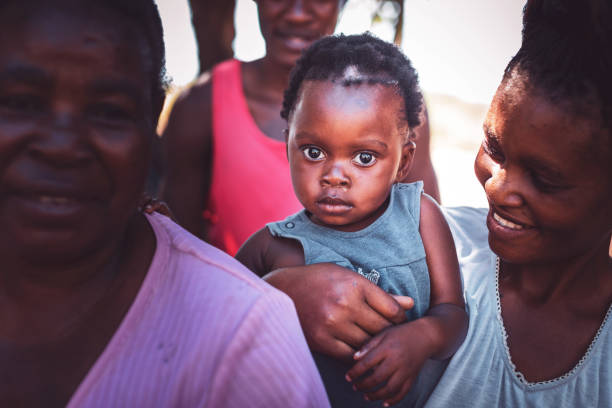When the baby is born, the room erupts. There’s laughter, clapping, and congratulations. Cameras flash, messages pour in, and the world celebrates.
And then… the room grows quiet.
The applause fades. The visitors leave.
And a new mother sits in silence, bleeding, aching, sometimes crying, often wondering: What now?
A Story We Rarely Tell
Amaka remembers the day she returned home after delivering her son. She was exhausted but smiling, because that’s what everyone expected.
But behind closed doors, the truth was different.
She bled through her clothes. Her stitches burned. Breastfeeding felt like a battle she was losing. At night, she stared at her son sleeping and whispered, “Why don’t I feel the joy they promised me?”
No one had told her that postpartum wasn’t just about healing. It was about surviving the hidden hours — the moments between visitors, the long nights, the quiet struggles she didn’t dare share.
Amaka’s story isn’t unique. It is the reality of millions of African mothers.
What This Month Has Shown Us
During Postpartum Changes Awareness Month, we opened the door to these stories, and mothers stepped forward with courage.
- Some spoke of walking miles for checkups, only to arrive bleeding and weak.
- Others admitted to numbness so deep they feared they were broken.
- Many revealed the pressure to breastfeed perfectly, even while in pain.
- And countless mothers shared the quiet relief when a neighbor, auntie, or midwife simply showed up.
Together, these voices reminded us: the postpartum journey is not a footnote to childbirth, it’s a chapter that demands attention, compassion, and support.
Where We Go From Here
The month may be over, but the work is not.
If there’s one thing we’ve learned, it’s that silence is the enemy of healing.
We need:
- Policy that sees postpartum care as essential, not optional.
- Communities that check in on mothers as much as babies.
- Partners and families who know the signs of depression and exhaustion.
- Networks of aunties, neighbors, and midwives, the invisible hands holding mothers together.
Because when mothers are strong, communities thrive.
Read more of the stories shared this month on our LinkedIn page @ https://www.linkedin.com/company/maternal-care-in-africa. Share them. Start conversations. Be the voice that breaks the silence in your community.
Because motherhood should not be survived in silence, but supported in love.

